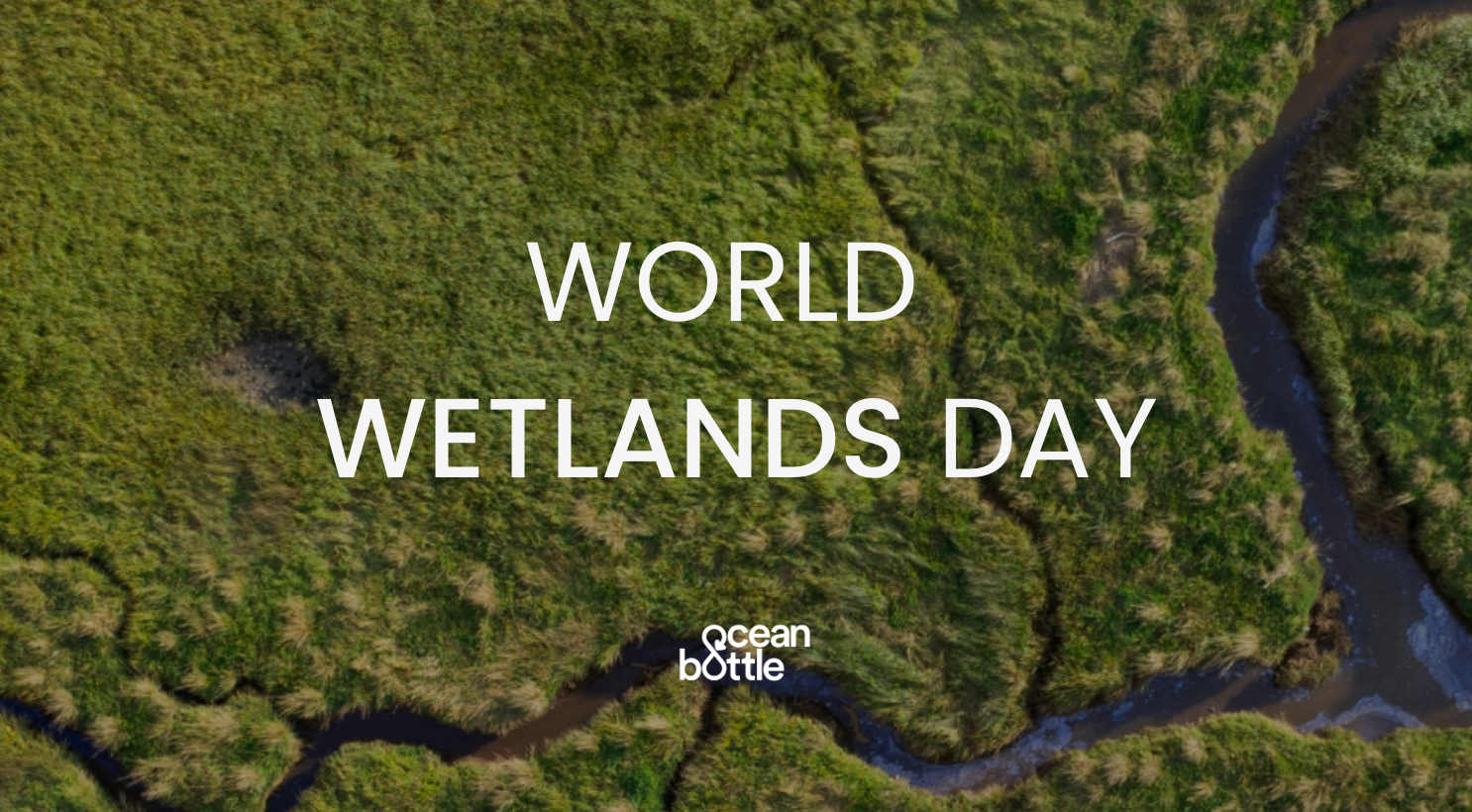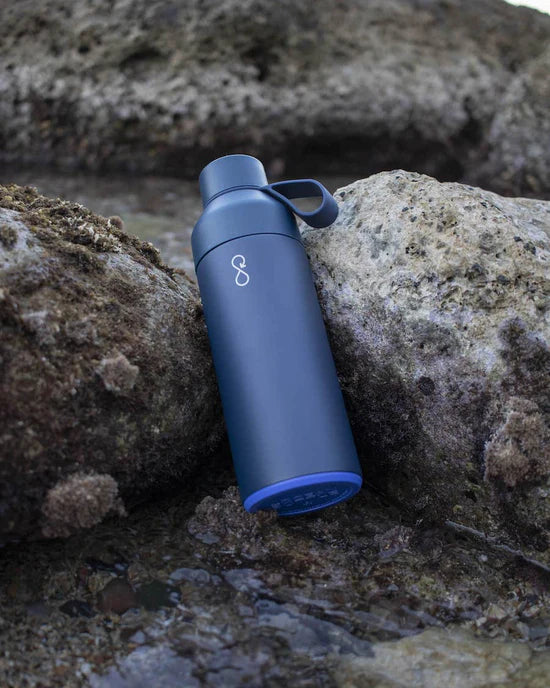Wetlands are found in every continent apart from Antarctica, and it’s estimated that 4-6% of land is considered a wetland! So, the chances are you’ve heard of them before - or perhaps you’ve seen them as mangroves, marshes, or even rice fields!
Well why are we celebrating them at Ocean Bottle? Let’s get into it!
As part of World Wetlands Day, it's only right that we shout about the integral role wetlands play in mitigating climate change through carbon sequestration and preserving our ocean’s health by maintaining water quality. And, with two out of four of our Impact Pillars being Climate Action and Ocean Health, supporting wetland conservation is a no-brainer for us!
So, what is a wetland?
A wetland is an ecosystem that is permanently or seasonally covered by water, in both freshwater and saltwater conditions. These areas of land are also known as marshes, swamps, peatlands, and bogs.
There are many reasons why this (often overlooked) ecosystem deserves its own celebratory day. Here are some that we think are particularly admirable:
🐟 Biodiversity Hotspots - Wetlands are among the most diverse ecosystems on Earth, enabling them to serve as vital habitats, breeding grounds and nurseries! Migratory birds, fish, amphibians and other wildlife are supported by global wetlands, which is key to mitigating one of the major climate crises we are facing today - biodiversity loss. They are now home to at least one third of endangered and threatened species!
💧Water Filtration and Purification - The waterlogged ecosystems act as natural water filters. Their rich vegetation and peat soil help to trap sediments and filter out pollutants. This purification process enhances water quality, making wetlands crucial for maintaining clean water sources for both wildlife and human communities nearby.
✋ Flood and Drought Control - The ability of wetlands to absorb and slow down water flow makes them natural buffers against floods. During heavy rainfall or storm events, wetlands act as sponges, reducing the risk of flooding, and, in turn, preventing drought events by retaining that water. The captured water is gradually released during dry seasons and groundwater levels are restored, making the water supply more consistent!
🪣 Carbon Sequestration - Wetlands are important carbon sinks, particularly peatlands, both of which store large amounts of carbon in their soils for thousands of years! The waterlogged, low-oxygen conditions prevent carbon from being released into the atmosphere as carbon dioxide (CO2) - this helps to maintain Earth’s carbon balance, and reduces greenhouse gas emissions!
🌾 Agricultural Support - Sustainable land management practices consider wetland health as an essential ecosystem for agricultural sustainability. This is because wetlands support water regulation, fertile soil, nutrient cycling, drought prevention, and a stable water supply!
Unfortunately, global wetlands are under threat from various factors that jeopardise their health and functionality. Urbanisation and infrastructure development has often led to the destruction of these habitats, and pollution plays a part in reducing their water quality. Many wetlands have also endured a history of man-made drainage activities, which can disrupt the natural water flow and, ultimately, dry out the ecosystem. Campaigns like World Wetlands Day help to raise awareness of the importance of wetlands, and encourage the protection of their health. By visiting your local wetland, you too can support the conservation and growth of pivotal ecosystems!
Below, we have listed some of the accessible wetlands across the UK:
- WWT London Queen Elizabeths Walk, Barnes, London
- WWT Slimbridge Newgrounds Ln, Slimbridge, Gloucester
- WWT Steart Marshes Stert Drove, Stockland, Bristol, Bridgwater
- WWT Martin Mere Fish Lane, Burscough
- WWT Llanelli Llwynhendy, Llanelli
- WWT Washington Pattinson, Washington, Newcastle
- WWT CaerlaverockEastpark Farm, Caerlaverock
- WWT Castle Espie 78 Ballydrain Rd, Comber, Newtownards
To find out more about World Wetlands Day, visit here!


